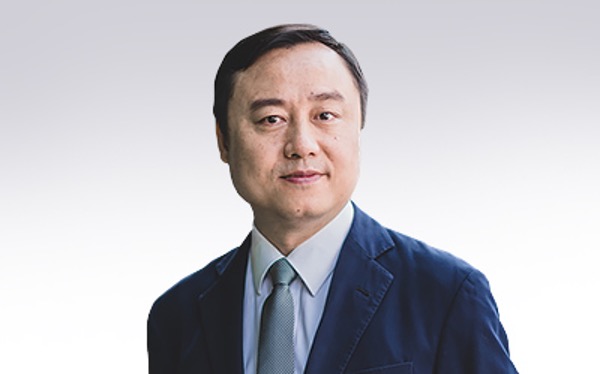Most highly cited researchers 2021
December 02, 2021Beyond academic excellence, the Faculty of Science’s researchers also focus on creating value and impact to address real-world problems. Our research has led to patents and translational outcomes as we strengthened existing partnerships and ventured into new collaborations with industry.
We are proud to share that some of our scientists have been placed among some of the world’s most highly cited researchers, according to the Highly Cited Researchers 2021 List published by data analytics firm Clarivate.
The highly-anticipated annual list identifies researchers who have demonstrated significant influence in their chosen field or fields through the publication of multiple highly cited papers during the last decade.
Prof Guillermo Carlos BAZAN, Department of Chemistry

Prof Bazan’s research is on the synthesis of organic molecules with architectures that optimise optoelectronic performance, providing an understanding of the electronic delocalisation between organic chromophores in the solid state. He has received many accolades over the years, including being recognised as one of the Institute for Scientific Information (ISI) Highly Cited Scientists in Materials Science (2017), Thomson Reuters’ “Most Influential Scientific Minds” (2015), Fellow of the Royal Society of Chemistry (2014), Top 50 Material Scientists by Citation and Impact, Thompson Reuters (2011), and many more.
Assoc Prof Goki EDA, Department of Chemistry and Department of Physics

Assoc Prof Eda is known for his pioneering work in the emerging field of two-dimensional (2D) materials, which are crystalline, sheet-like materials with thicknesses of no more than a few atoms. His interdisciplinary work focusing on the unique physical and chemical properties of 2D materials has been highly recognised by the scientific community. Assoc Prof Eda received the Nano Research Young Innovators (NR45) Awards in Two-Dimensional Materials (2021), the Springer and Tsinghua University Press Award (2021), the Faculty of Science’s Outstanding Scientist Award (2020), amongst many accolades.
Prof JIANG Donglin, Department of Chemistry

Prof Jiang is widely recognised as a distinguished scientist and pioneer in the field of two-dimensional (2D) polymers and covalent organic frameworks (COFs). Prof’s Jiang work is on the design, synthesis, and functional exploration of 2D polymers and COFs, as well as covalent organic frameworks, including their chemistry, physics and materials. He has received a multitude of awards, including the 34th Chemical Society of Japan Award for Creative Works (2017), Young Scientist Prize, Ministry of Education, Culture, Sports, Science and Technology, Japan (2006), and many more.
Prof LIU Xiaogang, Department of Chemistry

Prof Liu is internationally recognised for his groundbreaking research on luminescent nanomaterials. His most influential breakthrough is the development of nanomaterials that emit visible colours upon illumination with an invisible near-infrared light source. This new class of luminescent nanomaterials can be used as next-generation molecular probes for tracking cancer cells, replacing conventional biomarkers. He has received many accolades, including the NUS Outstanding Researcher Award (2017), President’s Science Award (2016) and Thomson Reuters Highly Cited Researchers in Chemistry (2016, 2015), amongst others.
Prof LOH Kian Ping, Department of Chemistry

Prof Loh demonstrated that graphene can be transferred in a face-to-face manner from the copper surface on which it grows to the underlying silicon substrate. These achievements overcome critical bottlenecks for technological application. In related breakthroughs, his group also demonstrated the use of graphene and its oxides in a wide variety of applications, from catalysis for green chemistry, to creating micro-reactor pockets for confined chemistry, to growing of stem cells, and controlling of laser pulses. He received the President’s Science Award (2014), the American Chemical Society Nano Lectureship Award (2013) and University Outstanding Researcher Award (2012), amongst other accolades.
Prof Antonio Helio de CASTRO NETO, Department of Physics

Prof Castro Neto is a materials scientist and condensed matter theorist who has achieved world recognition for his work in rare earths, actinides and 2D materials. He was one of seven NUS researchers who were newly elected as Fellows of the Singapore National Academy of Science (2021). He is concurrently Director of the Centre for Advanced 2D Materials and recently founded 2D Materials (2DM) Pte Ltd, MADE Advanced Materials Pte Ltd, PHASE Events Pte Ltd and Graphene Watts Pte Ltd.
Prof CHEN Wei, Department of Chemistry and Department of Physics

Prof Chen’s research focuses on molecular-scale understanding of the interface properties for molecular, organic and graphene electronics. This is to provide design rules for effective interface engineering approaches to improve device performance and materials efficiency, with particular emphasis on the interface-controlled interface engineering for organic and two-dimensional (2D) materials based functional devices, and interface-controlled nanocatalysis for energy and environmental issues. He was the recipient of the Mitsui Chemicals-SNIC Industry Award (2020) and Singapore Young Scientist Award (2012), amongst many other accolades.
Prof Barbaros ÖZYILMAZ, Department of Physics

Prof Özyilmaz is focused on accelerating the widespread adoption of graphene and other two-dimensional (2D) materials into industry. Through his cutting-edge research, Prof Özyilmaz recently discovered that 2D materials could be synthesised in such a way that they are amorphous films rather than crystals. These amorphous 2D films still have some of the desirable properties of crystalline 2D materials, but are much more hardy, and cheaper to make. His work has resulted in four provisional patent applications, seven national stage pending and 36 (12 unique) patents granted. He is the recipient of numerous awards including the Institute of Physics World Scientific Award, Singapore (2013), NUS Young Investigator Award (2010) and the National Research Foundation (NRF) Fellowship (2008), amongst others.


